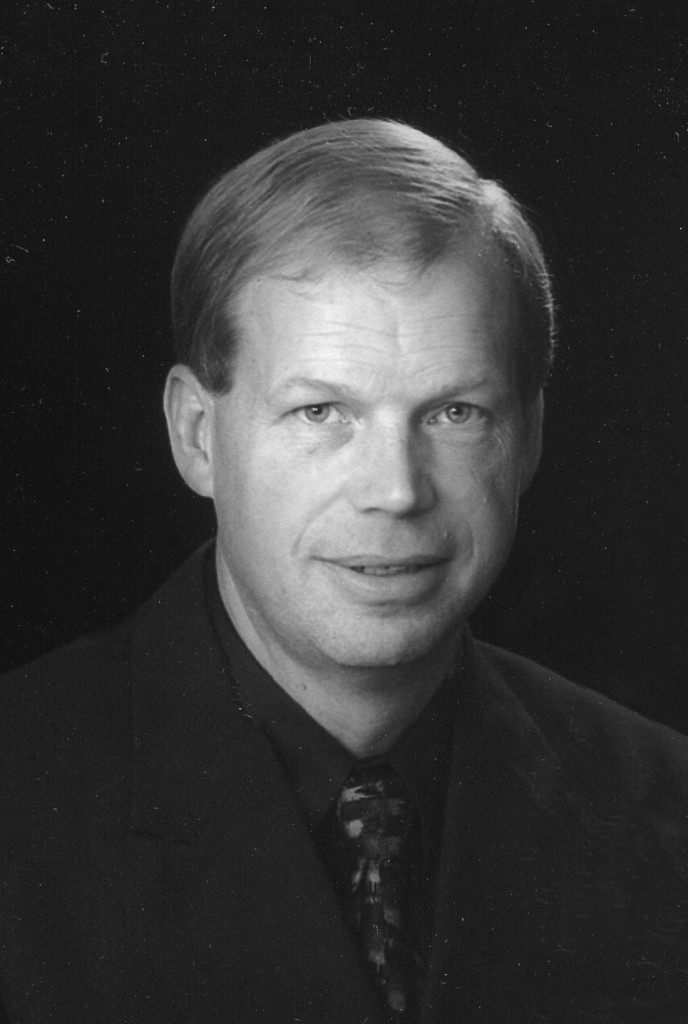
We are all infected from birth with an insatiable desire to be somebody. Even shyness is but an ironic twist on that desire. The Scriptures call it “the pride of life,” and names it as one of three categories under which all sins fall.
Our hunger to be recognized or known colors everything we do.
Interestingly, while the Bible categorizes such a desire now as sinful, it is clear that God does intend that those who come to Him in repentance and faith will indeed, someday, be somebody! Christ stated that those who lose themselves for His sake will find themselves, and those who humble themselves will be exalted. . .in due time!
He calls on us to be humble and patient in the meantime. Paul writes that bearing patiently with the trials of this world “is working for us a far more exceeding and eternal weight of glory,” (II Corinthians 4:17), and that “the sufferings of this present time are not worthy to be compared with the glory which shall be revealed in us,” (Romans 8:18).
Patience, of course, is not a current American value!
In what could have been a play on this fear we all experience, that of being nobodies, a sci-fi movie was made in 1957 called “The Incredible Shrinking Man.” The protagonist, Scott Carey, having been enveloped by a mysterious fog while boating, began to slowly shrink until he became microscopic in size. It was considered part of the horror genre, though it was milder than many other such movies.
A common complaint of many today is that they feel “invisible” and unheard. “The Incredible Shrinking Man” apparently exploited that fear to become a box office success. But, in an ironic twist, Mr. Carey became comfortable with his plight reasoning that regardless of his size, God knew where he was!
What a change in Hollywood thinking since 1959!
Today, God has been virtually scrubbed from popular culture leaving people in their perceived state of “minimalization” and hopelessness. They grasp at anything that promises hope of their being significant in some way. Strangely, in a culture that smirks at God, many seek desperately to be “gods.”
Not really surprising!
The human story begins with Satan tempting Adam and Eve with immediate “godlikeness” and the rest is, of course, history. The elevation of self-worship and immediate gratification explains all the wars, all the violence, all the tears and sorrow of history. And in the last sixty years it has done more harm to Americans than can be put into words. It explains the “me generation,” the Hippy movement, the widespread use of drugs and alcohol, as well as the perversion of sex, music, and art.
It also explains the widespread rejection of Christianity’s principles.
Christianity may be defined in a host of ways, but historically it contained, among other things, these two elements: There is a God who will judge all people at some time, and we must wait for the “after life” to experience a life without pain.
It created a certain fear of judgment in the minds of most, which tended to limit people’s worst behavior and reduced expectations of an easy or good life here. In simple terms, Christianity demanded an exalted view of God and a humble submission to His plan.
This partly explains Karl Marx’s comment that
“religion is the opiate of the masses.”
He believed that Christianity kept people passive and “controllable” even as their lives were miserable. Yes, Christianity provides a means whereby people can be joyful even in sorrow and poverty, and it depended upon a meek perspective of self.
Christianity takes a rather dim view of “self.” The Apostle Paul, referring to himself, noted,
“I know that in me (that is in my flesh) nothing good dwells,” (Romans 7:18).
His epistles make it clear that he saw himself and every other person, as deserving of God’s wrath. Christ, speaking of the principle of self-sacrifice, spoke metaphorically,
“unless a grain of wheat falls into the ground and dies, it remains alone. . . .” (John 12:24).
Elsewhere, He said,
“whoever desires to save his life will lose it, but whoever loses his life for My sake will find it,” (Matthew 16:25).
Clearly, Christ put a premium on humility and self-sacrifice!
However, what we have witnessed over the last fifty years is an eruption of what can only be called “self-worship.” It is not only acceptable to “express yourself” however you choose, it is considered the supreme “good.” From the art world, where the scribbling of a child is considered equivalent to the Dutch Masters, to music, where the only criterion for greatness is to be unique, and to the broader culture where the only thing forbidden is to call something wrong, we witness a kind of self-deification.
The highest achievement is “self-expression,” regardless of its lack of objective merit.
If atheists are correct, that elevating self is a person’s greatest good, one would think that with Christianity’s declining influence, and the virtual elimination of standards, there would be a subsequent flourishing of personal contentment and a decrease in social ills.
The opposite has occurred.
On the one hand, talking heads and Leftist leaders tell us that everything is getting better, but all the evidence suggests otherwise. Crime and suicide rates are up significantly, indicating that “looking out for number one” is not so wonderful after all. How often have you heard people uttering things such as, “do you know who I am?” and “you can’t say that to me!”
Conflict abounds on every hand!
Marxists, masquerading as “Progressives,” offer utopia now; but if we have learned anything from history, it is that Marxists are generally willing to burn the place down and slaughter indiscriminately in their quest to create “Heaven.” Of course, Marxists are not really interested in Heaven, now or later, but rather manipulate people’s self-interest and desire for a better life to accrue absolute power to themselves.
In other words, those of you who expect Leftists to bring in a “brave new world” might want to lower your expectations a bit. If the Leftists get their wish, citizens who survive at all will consider themselves fortunate. . . or not.
Regardless, for the three thousand years that the Bible has been around, it has never been found wrong; therefore, we would be wise to accept its message that Paradise was lost and will not be regained until Jesus Christ returns to establish it. In the meantime, the governing principle for finding the best “you” is in forgetting “you.”
When Christ said that “whoever will save his life will lose it,” He meant that those who focus their energies on pleasing themselves will find their lives empty and hopeless. The more one seeks to be somebody, the less “somebody” he will become.
As I invest time and energy in myself, there will be less and less “me.” Or as someone put it, “anyone wrapped up in themselves makes a very small package.”
Fear of death, loss, or of being nobody are legitimate fears, but the answer does not lie in magnifying self, or in making self the center of one’s life. To do such is counterproductive. The current cultural unrest, confusion and violence are clear evidence that elevating self is the wrong plan! The larger I try to make “me” the less “me” there is.
It is a vicious and addictive cycle! Those who allow themselves to fall into the trap find themselves in a predicament not unlike quicksand: the more they struggle, the worse their circumstance!
God, as our Creator, knows precisely what brings us fulfillment. He notes in Psalm 16:11,
“You will show me the path of life; in Your presence is fullness of joy; At Your right hand are pleasures forevermore.”
Our sin and our contentment with our sin is the problem.
It separates us from God, but it is in His presence alone that true joy and pleasure are found. Thus, our own sin is the greatest obstacle to the joy we seek!
Sadly, like the child who refuses to let go of a pleasant trinket to receive a gift of real value, most people hold onto their sin and the temporary pleasures of their sin, rather than repent and trust in God’s forgiveness. Thus, their ongoing search for meaning and joy remains futile. And this is contemporary culture!
The emptiness and hopelessness expressed in American society is not at all surprising.
God will not and cannot allow the joy found only in His presence to be experienced by those who reject His presence!






















